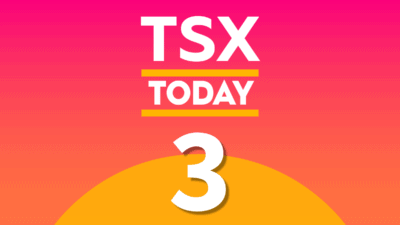Passive-income investors actually have an opportunity to get more yield for less after the recent market correction in the REIT space. Undoubtedly, inflation and market volatility have put investors between a rock and a hard place.
It feels good to think about selling out with the intention of getting back in later. Given that most panic sellers tend to buy back at much higher prices than where they sold, I’d argue that unless you can predict the future, it’s better to stay the course and actually buy stocks or REITs to average down your cost basis and average up your dividend yield.
Yes, you’ll get short-term relief from selling, as markets tumble into a bear market. But over the long run, you may regret your decision to end the pain for your portfolio in the heat of the moment.
Even if you do sell and stash your cash in a savings account, what then?
Though bond yields and interest rates may be slightly higher than where they were a year ago, inflation has taken off. A 1-3% yield from risk-free security leaves you losing ground to the 7.7% inflation rate. In short, risk free is a losing proposition for those who seek to build wealth, rather than see it erode from inflation’s impact.
While a 4% loss in purchasing power may seem easier to stomach than 20% losses in markets, I’d argue that stock and REIT multiples are better today than just a few months ago.
Further, yields are also higher. Have risks risen substantially in just a few weeks?
Not really. The Fed could send us spiraling into recession in a few quarters. However, many of the best-run firms are more than able to keep their payouts secure.
TFSA investors: There’s a lot to gain by going against the grain
That’s why I believe passive-income investors should buy rather than sell amid market fear. Seek to increase your portfolio’s average yield now that yields are higher. Though this market correction could last far longer than those that experienced V-shaped recoveries, richer dividends and distributions are a terrific incentive to keep rolling with the punches that Mr. Market will throw your way.
If your legs are wobbly, it’s hard to keep rolling with the punches. However, the payout could be great if you don’t give up and persevere through another few rounds in the ring with a Mr. Market who’s starting to run out of gas.
Currently, I like H&R REIT (TSX:HR.UN) after its epic tumble.
H&R REIT
H&R is a diversified REIT that can’t seem to catch a break after sinking to $12 and change per share. Shares of the $3.4 billion diversified REIT trade at an unprecedented 2.5 times trailing earnings, with a 4.5% yield. That’s absurd value, as investors soured on the REIT for its heavy office exposure, which saw demand be decimated during the pandemic.
H&R has undergone quite a bit of change since 2020, with spin-offs and divestitures. Still, investors have not forgiven or forgotten about the distribution cut. Further, recent moves may be questionable, given the discount on the broader retail and office real estate space these days.
Like it or not, H&R is focused on the path forward. Though headwinds are still strong, I think the valuation has overshot to the downside.








